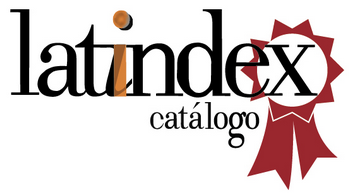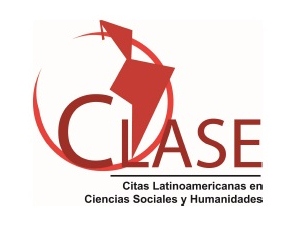¿Qué es la dialéctica de los argumentos?
Resumen
Este artículo es una descripción de mi programa de investigación en teoría de la argumentación, conocido como “dialéctica de los argumentos”. La dialéctica de los argumentos estudia las propiedades lógicas de los argumentos en el marco de las prácticas que consisten en pedir, dar y examinar razones. Argumentar produce un discurso con una orientación argumentativa (una argumentación) que resulta de un complejo proceso de combinación, comparación y ponderación de consideraciones. El nombre de ‘dialéctica de los argumentos’ alude precisamente a la importancia concedida a las relaciones interargumentativas, y muy especialmente a las relaciones de oposición. Los argumentos solo aparecen cuando se extrae del entramado de una argumentación una consideración y la posición que favorece dentro de ella.Citas
Alhambra Delgado, José (2023). Argumentación por comparación (Comparison Argumentation). Revista Iberoamericana de Argumentación 24, 1–31
Blair, J. Anthony (2012 [1998]). Groundwork in the Theory of Argumentation. Dordrecht, Heidelberg, Londres y Nueva York: Springer.
Dancy, Jonathan (2004). Ethics without Principles. Oxford: Oxford University Press.
Dretske, F. (2005). The Case Against Closure, en Steup, M. y Sosa, E. (eds.), Contemporary Debates in Epistemology, pp. 27–40. Malden, MA: Wiley Blackwell.
Eemeren, Frans H. van y Grootendorst, Rob (2002). Argumentacion, comunicacion y falacias. Una perspectiva pragma-dialéctica. Traducción al español de Celso López y Ana María Vicuña. Santiago de Chile: Ediciones de la Universidad Católica de Chile.
Finocchiaro, Maurice (2013). Meta-argumentation. An Approach to Logic and Argumentation Thery. Londres: College Publications.
Flamenco García, Luis (2000). Las construcciones concesivas y adversativas, en I. Bosque y V. Demonte, dirs., Gramática descriptiva de la lengua española, volumen 3, 3ª reimpresión, pp. 3808-3878. Madrid: Espasa Calpe.
Frápolli, María José y Villanueva, Neftalí (2013). Frege, Sellars, Brandom: Expresivismo e inferencialismo semánticos. En D. Pérez Chico, coord., Perspectivas en la filosofía del lenguaje, pp. 583-617. ISBN 978-84-15770-66-4. Zaragoza: PUZ.
Goddu, G.C. (2011). Is ‘argument’ subject to the product/process ambiguity? Informal Logic, Vol. 31, no. 2, pp. 75-88.
Govier, Trudy (2010). A Practical Study of Argument, 7ª edición. Belmont, CA: Wadsworth.
Hamblin, Charles (2016). Falacias. Lima: Palestra.
Hernández, Alfonso (2023). Disentangling Critical Questions from Argument Schemes. Argumentation 37, 377–395.
Horty, John (2016). Reasoning with Precedents as Constrained Natural Reasoning. En E. Lord y B. Maguire, eds., Weighing Reasons, pp.193-212. NuevaYork: Oxford University Press.
Ichikawa, Jonathan Jenkins (2017). The Routledge Handbook of Epistemic Contextualism. Londres y Nueva York: Routledge.
Johnson, Ralph H. (2000). Manifest Rationality. Mahwah, NJ: Lawrence Erlbaum.
Lamond, Grant (2005). Do Precedents Create Rules? Legal Theory, 11, pp. 1–26.
Leal, Fernando (2021). Teoría(s) de los argumentos. Diálogo Filosófico vol.38, septiembre/diciembre de 2021.
Leal, Fernando y Marraud, Huberto (2022). How Philosophers Argue. An Adversarial Collaboration on the Russell--Copleston Debate. Cham: Springer.
Levi, Don S. (1995). The Case of the Missing Premise. Informal Logic, Vol. 17, No. 1, 67-88.
Marraud, Huberto (2018). Arguments from Ostension. Argumentation 32 (3): 309-327.
Marraud, Huberto (2020a). On the LogicalWays to Counter an Argument: A Typology and Some Theoretical Consequences. En F. H. van Eemeren y B. Garssen, eds., From Argument Schemes to Argumentative Relations in the Wild, pp.149-166. Cham: Springer.
Marraud, Huberto (2020b). En buena lógica. Una introducción a la teoría de la argumentación. Guadalajara: Editorial Universidad de Guadalajara. ISBN: 978-607-547-997-2.
Marraud, Huberto (2021). Holismo y atomismo en teoría de los argumentos. Diálogo Filosófico vol.38.
Muñoz, Nora Isabel y Plantin, Christian (2011). El hacer argumentativo. Buenos Aires: Biblos.
Nozick, Robert (1981) Philosophical Explanations. Cambridge, MA: Harvard University Press.
Sellars, Wilfrid (1956): Empiricism and the Philosophy of Mind, en Herbert Feigl y Michael Scriven, eds., Minnesota Studies in the Philosophy of Science, Volume I: The Foundations of Science and the Concepts of Psychology and Psychoanalysis, 253-329). Minneapolis: University of Minnesota Press, 1956.
Strasser, Christian y Antonelli, G. Aldo (2019). Non-monotonic Logic, en The Stanford Encyclopedia of Philosophy, Edward N. Zalta ed. Disponible en https://plato.stanford.edu/archives/sum2019/entries/logic-nonmonotonic/
Toulmin, Stephen E. (2007 [1958]). Los usos de la argumentación. Traducción al español de María Morrás y Victoria Pineda. Barcelona: Península.
Toulmin, Stephen E., Rieke, Richard. y Janik, Allan (2018 [1984]). Una introducción al razonamiento. Traducción al español de José Gascón. Lima: Palestra.
Vega Reñón, Luis (2011), “Esquema argumentativo” en Luis Vega y Paula Olmos (eds.), Compendio de lógica, argumentación y retórica, pp. 233-236. Madrid: Trotta.
Waismann, Friedrich (1968). How I See Philosophy. Londres: Palgrave-McMillan.
Wenzel, Joseph (2021 [1979]). Tres perspectivas de la argumentación: retórica, dialéctica y lógica. Traducción de D. Mejía Saldarriaga en L. Vega Reñón, ed., La teoría de la argumentación en sus textos, pp. 119-146. Lima: Palestra.
Una vez que un texto es aceptado para su publicación en Quadripartita Ratio, sus autores deben firmar dos documentos de carácter legal: una Licencia de uso y una Declaración de autoría.
Con la Licencia de uso, los autores autorizan la publicación de su obra y la difusión de ésta (integración en bases de datos, difusión en nuestras redes sociales, reediciones posibles, etc.). No obstante, se autoriza la descarga, reproducción y distribución de todos nuestros contenidos publicados, siempre que no se modifique el contenido y se indique su origen (nombre de la revista, volumen, número, páginas y dirección electrónica del documento).
Con la Declaración de autoría, los autores manifiestan que la obra es de su autoría, original e inédita.









